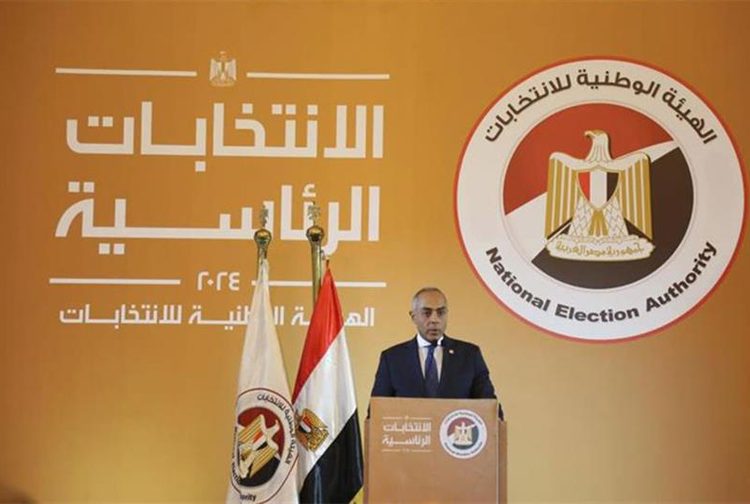The National Elections Authority (NEA) announced that all preparations for the three-day presidential elections in Egypt, which are scheduled to start on Sunday, have been completed.
During a press conference at the authority’s headquarters, Counselor Ahmed Bendary, Director of the Authority’s Executive Department, revealed the decisions taken by the authority to facilitate the voting process. He also revealed the number of polling stations within which the elections will be held, the judges supervising the elections, and the local and international organisations that will follow up the voting process.
Bandary said that the presidential elections for citizens in the country will be held in 9,367 electoral stations, including schools and youth centres, with 11,631 subcommittees, which have been fully equipped.
He said that the authority has created polling stations for commuters between cities and villages. He noted that these stations will cover industrial estates and tourist cities as well as all governorates, which has large numbers of commuters to enable them to cast their ballot and exercise their constitutional right.
He explained that the polling stations will also cover the Administrative Capital, Cairo Airport, the Media Production City, and other industrial and tourist places.
He revealed that the delivery of all electoral cards and papers to the polling stations nationwide has been completed, and all substations have been prepared.
He pointed out that 15,000 judges will supervise the presidential elections, and that the transfer of judges to the polling stations will begin tomorrow.
Counselor Bandari said that the authority sent invitations to all parties concerned with the elections and embassies to follow up on the elections.
He added that the authority has invited all diplomatic missions accredited inside Egypt to follow up on the electoral process, noting that 24 embassies have already submitted requests to authority, and 67 of their diplomats have registered to follow-up the election process.
He added that 14 international organisations will also follow elections, and that the number of observers who were issued permits reached 220. The authority has also registered 62 local civil society organisations, and permits were issued to 22,340 of their observers.
He said that the media follow-up of the presidential elections includes 528 international observers from 115 media outlets and journalists in addition to 70 local media outlets. Permits were issued to 4,218 journalists and media professionals.
He revealed that the authority provided voting cards in Braille to facilitate blind voters who wish to cast their votes.
The NEA, headed by Counselor Hazem Badawy, formed a central operations room to follow up on Egyptians casting their votes at the polling stations.
Bandary confirmed that the electoral campaigns for the candidates in the 2024 presidential elections, which began on November 9, following the announcement of the final list of candidates, and will stop with the start of the electoral silence period tomorrow.
The authority made available on its website the database of polling stations, where citizens whose names are registered will cast their votes.
The database also includes all the names and addresses of school headquarters, including polling stations nationwide, specifying all the data regarding the polling stations.
The NEA conducted the first round of elections for Egyptian expatriates on December 1, 2, and 3.
In the event of a rerun, elections for Egyptian expatriates will be held on Friday, Saturday, and Sunday, corresponding to January 5, 6, and 7, from 9am to 9pm, local time for each country, and elections for Egyptians at home will be held on Monday, Tuesday, and Wednesday, January 8, 9, and 10, from 9am to 9pm.
Observers at polling stations
President of the Arab Organisation for Human Rights (AOHR) Alaa Shalaby said on Monday that an AOHR team of observers has finalised all procedures necessary to monitor the upcoming presidential election, which will start in Egypt on December 10 for three days.
A group of international observers at the AOHR will follow up the voting process in 15 governorates, Shalaby said in statements to the official Middle East News Agency (MENA) on Monday.
The AOHR team includes 40 Arab and European observers who lead the oldest human rights organisations in the region, he noted.
An operations room has been working around the clock since November 30 to prepare for the 2024 presidential polls, Shalaby said.






Discussion about this post